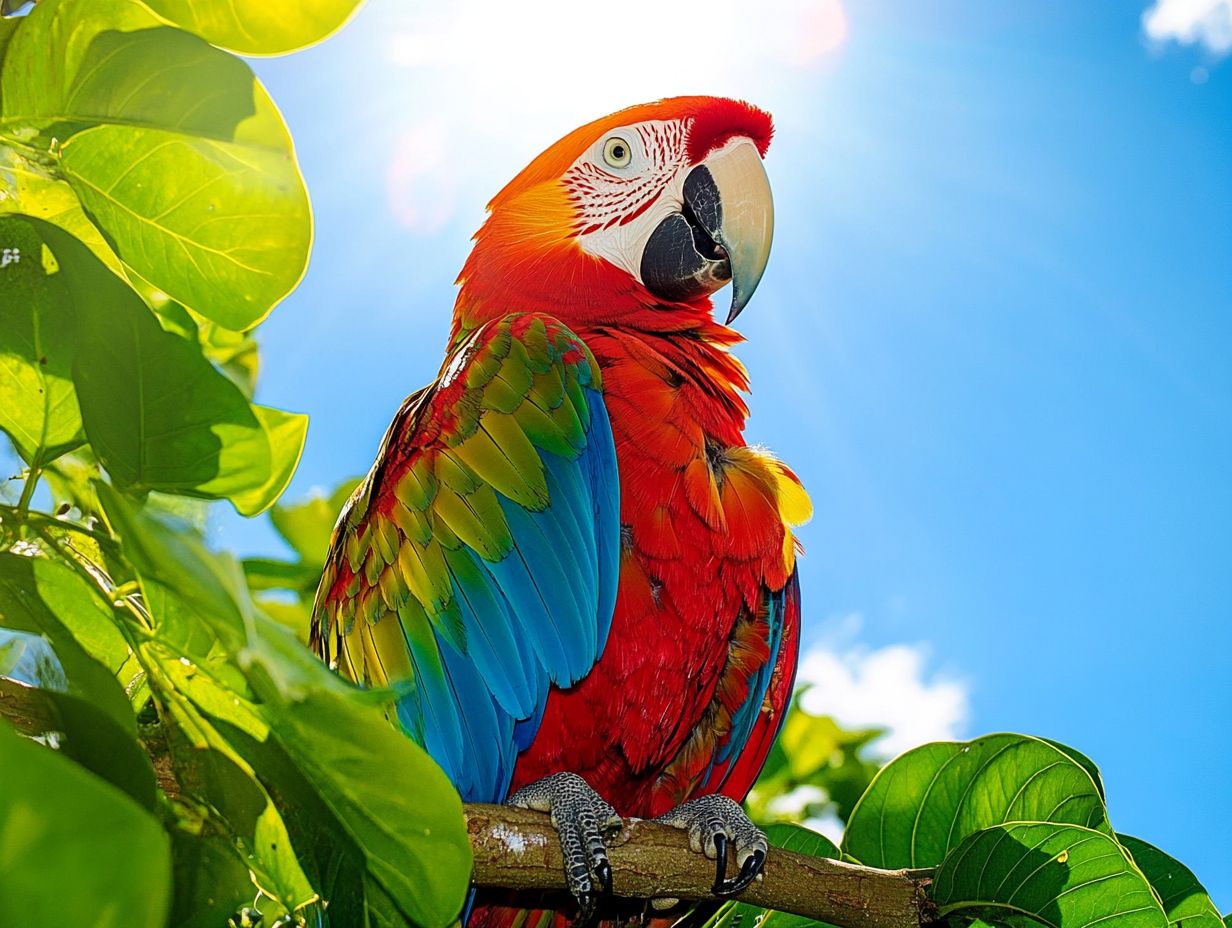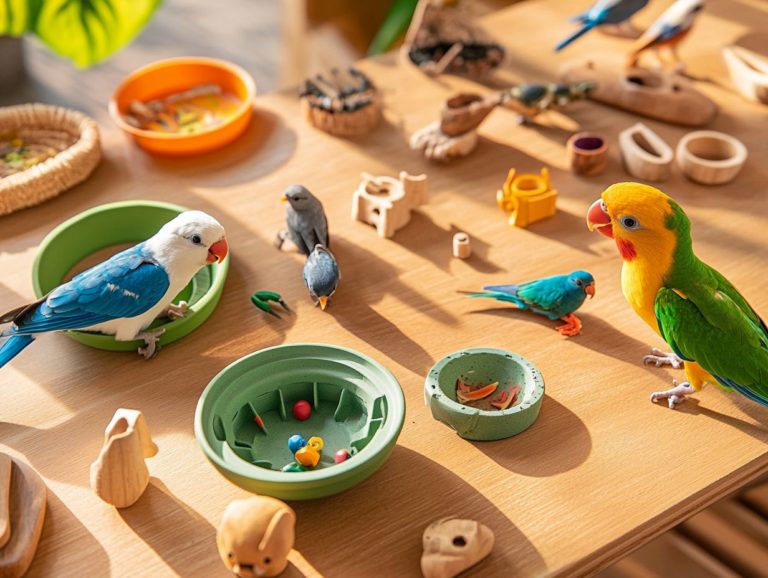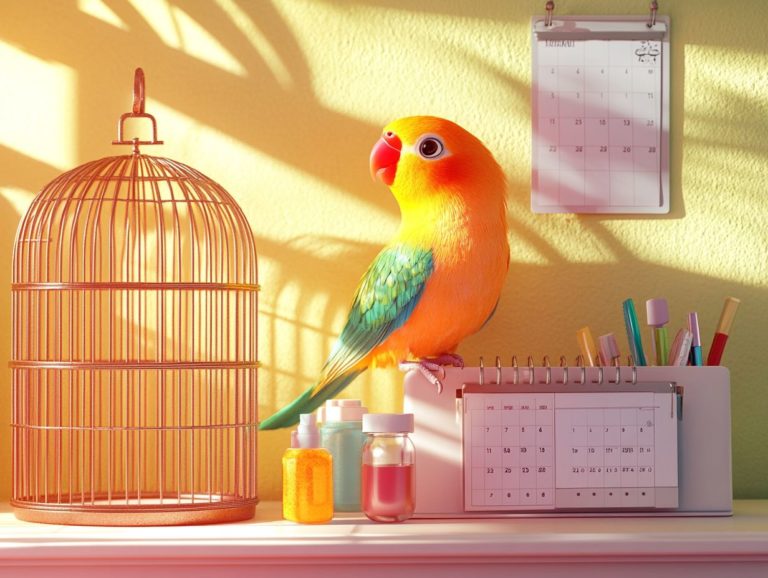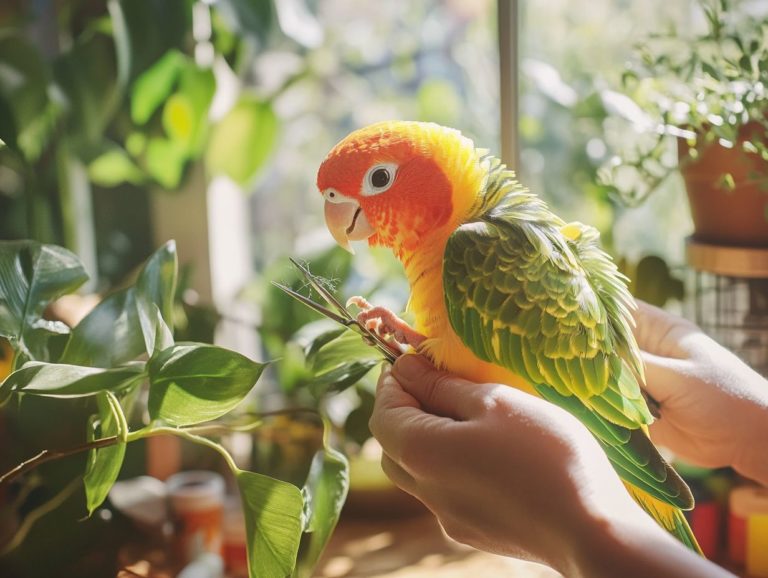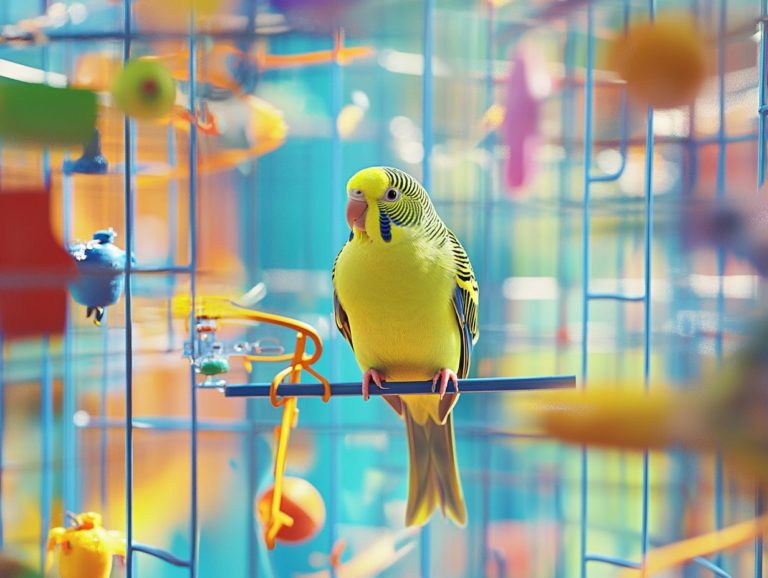Do Birds Need Sunscreen? Essential Care Tips
Birds, much like humans, face the risks associated with harmful sun exposure. Just as you reach for sunscreen to shield your skin, these feathered companions also deserve their own sun protection.
Let s explore why your birds need sunscreen, how to select the right products, and effective techniques for safe application. You ll also discover alternative methods for ensuring sun safety, as well as signs to look out for that indicate sunburn.
Explore essential tips to keep your avian friends safe while they bask in the sun at the beach.
Contents
Key Takeaways:
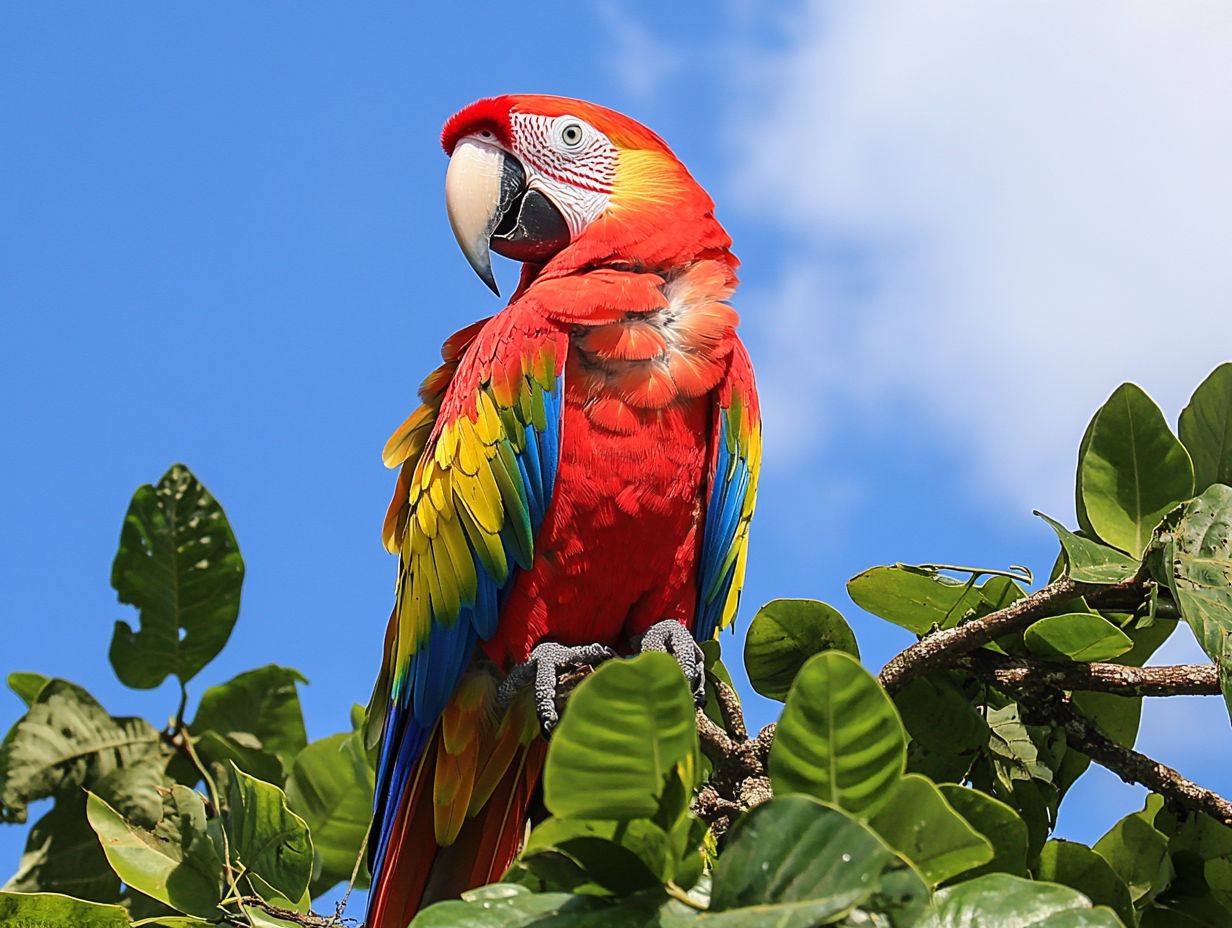
- Birds need sunscreen to protect their delicate skin from harmful UV rays, just like humans.
- When choosing sunscreen for birds, consider factors such as SPF level, ingredients, and potential toxicity.
- Proper application techniques and alternative methods, such as providing shade, can help protect birds from sun damage.
The Importance of Sun Protection for Birds
Protecting birds from harmful UV rays is essential for their health and well-being. Many species, like the sandpiper, spend considerable time outdoors.
Prolonged exposure to sunlight without proper protection can lead to a range of health issues, from skin damage to vitamin D deficiency. Just like you apply sunscreen to shield yourself from harmful chemicals and the cancer-causing effects of ultraviolet radiation, birds also need similar protective measures to promote their longevity and vitality.
Understanding the importance of sun protection for birds allows you to act now to ensure your birds stay safe and healthy under the sun, whether in aviaries or at home with indoor birds and pet birds.
Why Birds Need Sunscreen
Birds require sunscreen because their skin is sensitive to UV rays, which can lead to cancer-causing effects much like what mammals, including humans, experience.
Birds have feathers that provide some protection, but their exposed skin, particularly in species such as the African Grey Parrot or the Macaw, remains vulnerable. This underscores the importance of being mindful about their sun exposure.
The unique biological makeup of birds comes with skin characteristics that can suffer from excessive sunlight, potentially hindering their ability to process vitamin D3, a vitamin that helps keep bones strong. Maintaining adequate levels of this vitamin is crucial for calcium metabolism and overall health, significantly influencing bone density and strength.
Without appropriate protection from harmful UV rays, certain bird species may face health issues similar to those found in mammals, like cancer-causing conditions. This highlights the necessity for awareness and preventive measures.
Choosing the Right Sunscreen for Birds
Selecting the ideal sunscreen for birds is crucial for providing effective UV protection while avoiding harmful chemicals that could jeopardize their health. The formulation must prioritize avian well-being, effectively shielding against harmful UV rays while being gentle on the delicate skin of species like sandpipers and parrots.
Look for products infused with natural ingredients, such as antioxidants derived from algae or marine invertebrates, which can offer essential protection without triggering adverse reactions. It’s imperative to consider the unique requirements of birds when choosing a sunscreen to ensure their overall health and vitality.
Factors to Consider
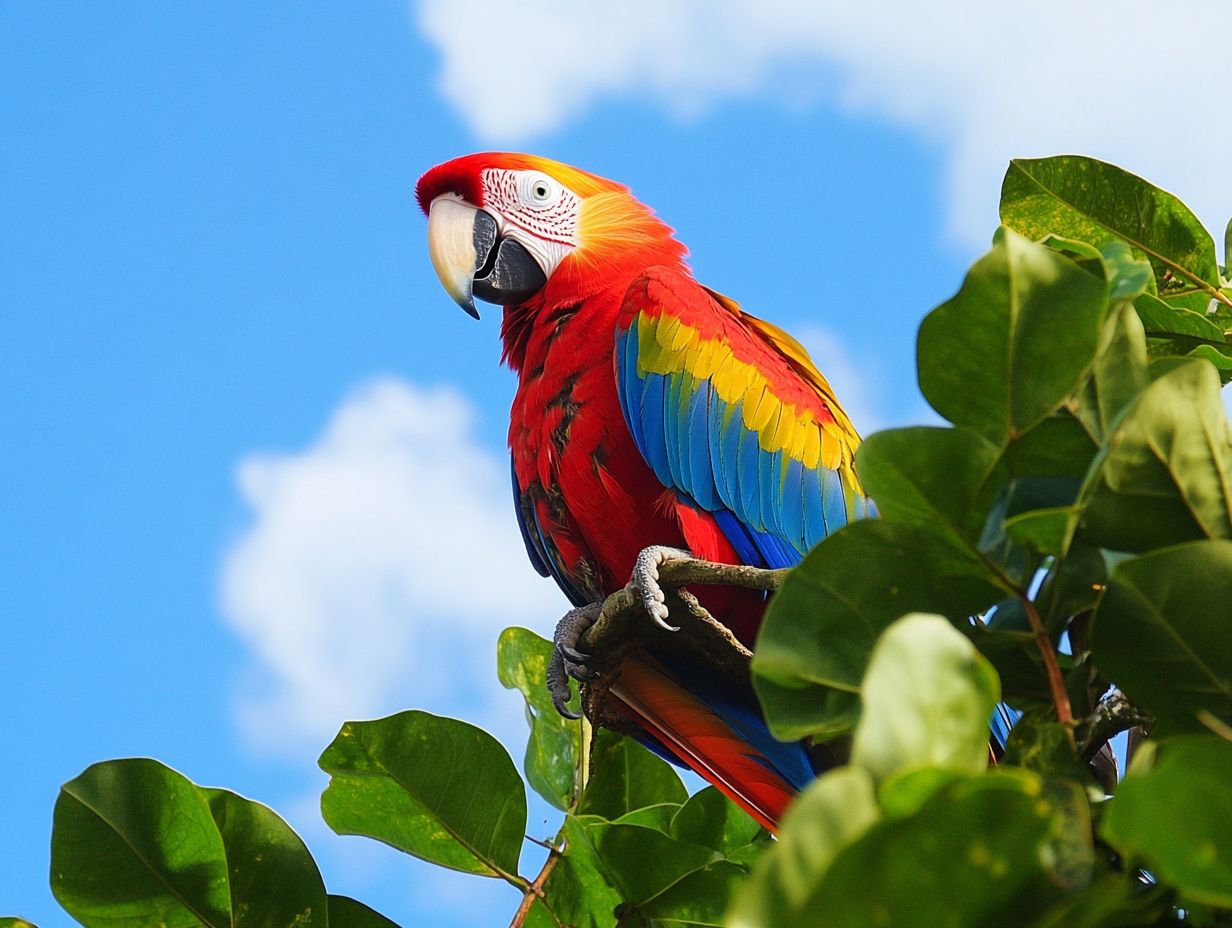
When selecting sunscreens for your birds, it s crucial to choose wisely! Consider several key factors, such as the effectiveness of UV protection and the safety of natural ingredients. Avoid products with chemical additives.
The SPF level shows how well the sunscreen protects against UV rays. Opt for broad-spectrum protection, which ensures coverage against both UVA and UVB rays, minimizing the risks of sunburn and long-term skin damage.
Be vigilant about potential allergens in various formulations, as they can pose significant health risks to avian species. Consulting with avian veterinarians offers invaluable insights into the best options tailored for your specific bird breeds, ensuring that the chosen product aligns perfectly with their health needs.
Understanding how different ingredients interact with a bird s unique physiology can help prevent adverse reactions and promote their overall well-being.
How to Apply Sunscreen on Birds
Properly applying sunscreen on birds is crucial for comprehensive coverage and safeguarding them from harmful UV rays. Use techniques that minimize stress for the bird while ensuring the product adheres effectively to their skin.
Birds, such as sandpipers and parrots, require delicate handling to keep them calm and cooperative. Grasp the right quantity to use and the areas to cover significantly enhances the sunscreen’s effectiveness, providing optimal protection against harmful UV exposure.
Proper Techniques and Tips
When applying sunscreen to birds, using the right techniques can simplify the process and enhance its effectiveness. This ensures thorough UV protection, especially in the context of sunlight exposure.
It’s important to recognize that not all birds will respond identically to sunscreen. Customize your application method to suit their species and temperament. For instance, small birds like finches may thrive with a gentle, lotion-based sunscreen applied using a soft cloth.
In contrast, larger birds such as parrots might prefer a spray application, distributing the product evenly without overwhelming them. Apply sunscreen about 30 minutes before sunlight exposure, allowing the product to adhere properly to their feathers.
To make this experience less stressful, adopt a calming approach. Engage in soft conversations or offer treats during the process to foster a positive connection with this essential routine.
Other Ways to Protect Birds from the Sun
Along with using sunscreen, several effective options are available to protect birds from harmful UV rays and maintain their overall health. Ensure both indoor birds and those in aviaries are shielded from direct sunlight, allowing them to thrive in a safe environment.
Alternative Sun Protection Methods
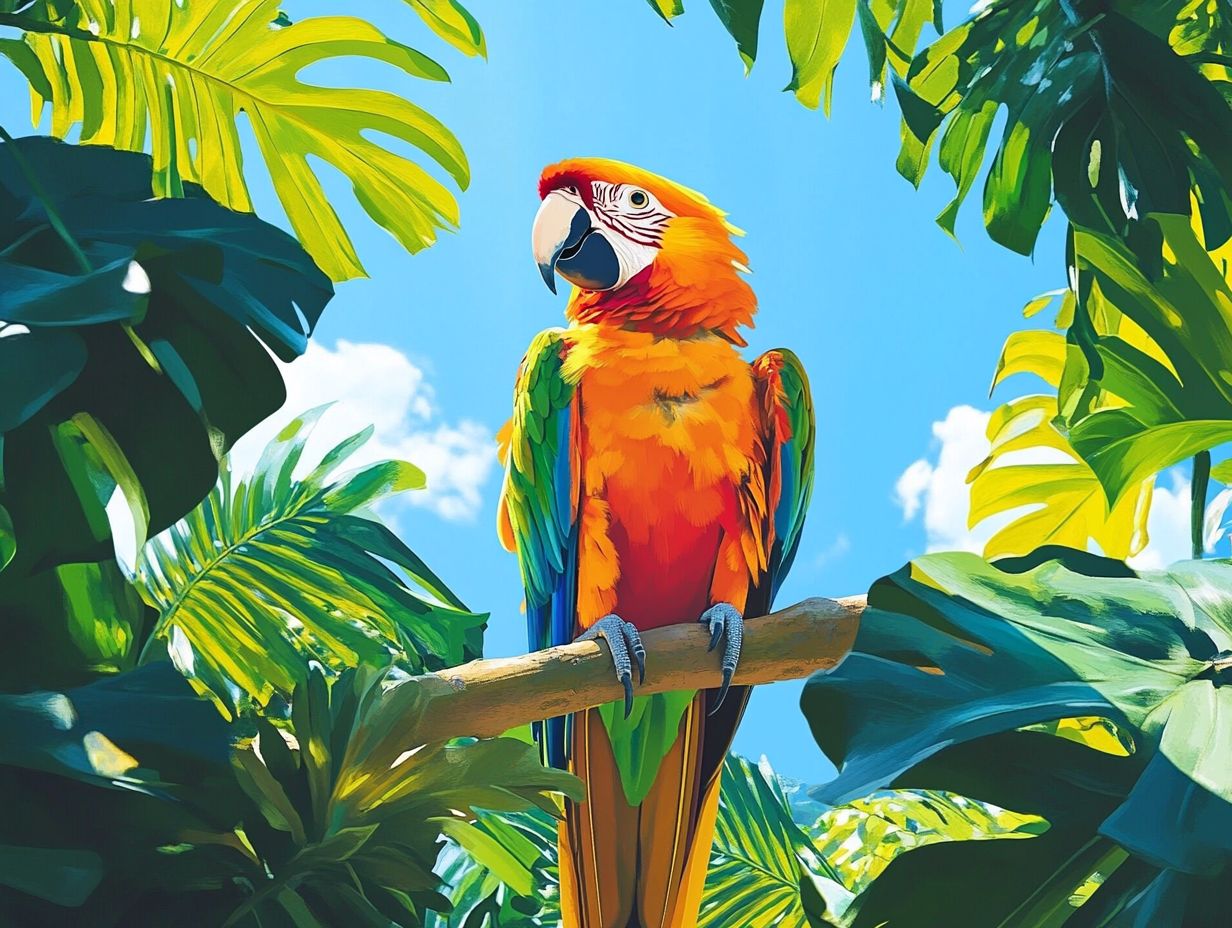
Alternative sun protection methods for birds provide comprehensive solutions to shield your feathered friends from harmful UV rays, allowing you to avoid solely relying on sunscreen.
These approaches encompass various techniques that effectively safeguard avian health. Utilize natural shade, such as leafy trees or specially designed aviaries, to create a cool retreat where birds can escape direct sunlight.
Incorporate UV-filtering materials in enclosures to minimize harmful exposure while allowing enough natural light for their well-being. Additionally, using artificial light sources that closely mimic daylight conditions helps maintain their circadian rhythms, which is essential for long-term health.
By combining these methods, you can cultivate a nurturing habitat that protects your birds from the sun’s harmful rays while promoting their overall vitality and resilience.
Signs of Sunburn in Birds
Recognizing the signs of sunburn in birds is essential for ensuring timely intervention and preventing long-term health risks linked to overexposure to UV rays. By staying vigilant, you can safeguard their well-being and promote a healthier, happier life for your feathered companions.
Act now to shield your feathered friends from harmful UV rays!
Identifying and Addressing Sunburn
Identifying and addressing sunburn in birds requires vigilance and a keen understanding of their unique signs. It’s also important to know how their skin reacts to artificial light and natural light to ensure they receive proper treatment and care.
Look for symptoms like redness, peeling skin, or any behavioral changes that suggest discomfort. These can be indicators of sunburn. If you notice these signs, take immediate action. This might include applying aloe vera directly to the affected areas or using soothing ointments made for bird care.
In more severe cases, seeking veterinary help is important, as professional assistance can prevent further complications.
To protect birds from sunburn in the future, provide shaded areas and limit their outdoor exposure during peak sunlight hours. This proactive approach is key to ensuring their long-term health and comfort.
Key Takeaways and Tips for Sun Protection
Key takeaways and tips for sun protection are essential for ensuring the health and well-being of birds. From sandpipers to parrots, various species thrive better with proper care and nutrition, including vitamin D in their diets.
Recognizing that birds can experience sunburn, just like humans, highlights the importance of using appropriate sunscreen made especially for bird skin. Choosing non-toxic products is vital, as harmful chemicals can affect their sensitive systems.
When applying sunscreen, do so carefully, ensuring even coverage on all exposed areas, especially during peak sunlight hours. Create shaded spots and consider using protective clothing as excellent alternatives to safeguard against the sun’s harsh rays.
By closely monitoring your feathered friends for signs of distress, such as redness or peeling skin, you can ensure timely intervention and holistic care, promoting their overall health and comfort.
Frequently Asked Questions
Do birds actually need sunscreen to protect their skin?
Yes, birds can benefit from sunscreen just like humans. Their skin is sensitive and can be damaged by harmful UV rays, so sunscreen helps prevent sunburn and other skin issues.
What types of birds should use sunscreen?
All types of birds can benefit from sunscreen, but those with lighter-colored feathers or less feather coverage are particularly at risk for sun damage. This includes birds like parrots, cockatoos, and African greys.
How often should I apply sunscreen to my bird?
It is recommended to apply sunscreen to your bird every 2-3 hours when they are exposed to direct sunlight. This will ensure their skin is continuously protected throughout the day.
Can I use regular sunscreen on my bird?
No, regular sunscreen made for humans is not safe for birds. It may contain chemicals that can be toxic to them if ingested. Always use sunscreen specifically formulated for birds, which is available at pet stores.
Check your birds regularly for any signs of sunburn and share your experiences with other bird owners. Together, we can ensure our feathered friends stay safe and healthy!
Are there any other ways to protect my bird from the sun?
Yes, you can provide shade for your bird when they are outside. Use a beach umbrella or an aviary for this purpose.
A shaded area or a cover for their cage can also help. This reduces their exposure to direct sunlight and lowers the need for sunscreen.
What are some signs that my bird may have sun damage?
If your bird’s skin looks red or inflamed, it may have sunburn. Pain or discomfort is also a sign that something is wrong.
Consult a veterinarian if you notice any concerning changes in your bird’s skin or behavior. This is important to ensure their health and safety.

